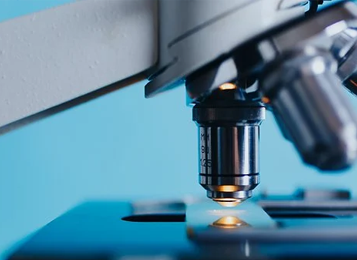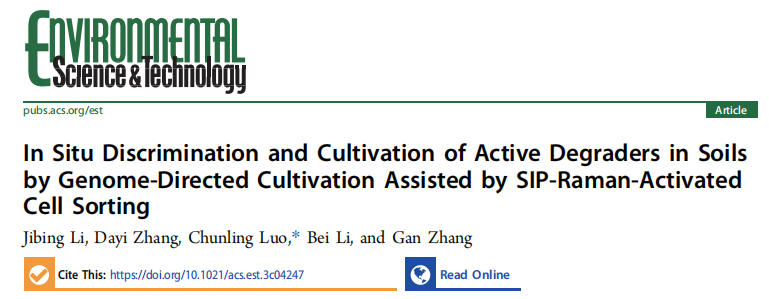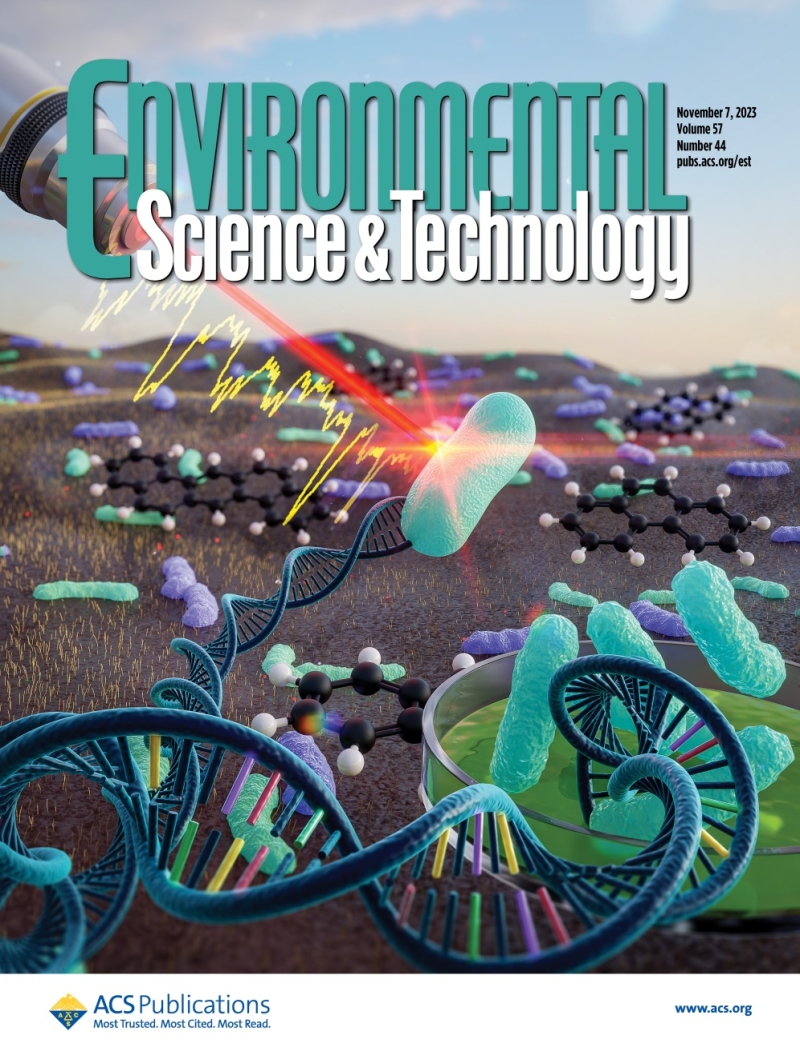

- Application Article
- Download
Hooke College

- About Us
- Team
- R & D and production
- Join Us
- Contact Us
- Qualification honor



On October 2, 2023, the research team of Li Jibing/Luo Chunling from the Guangzhou Institute of Geochemistry, Chinese Academy of Sciences, applied the core product of Changguang Chenying - PRECI SCS-R300 Raman Single Cell Sorter to publish a research article entitled "In Situ Discrimination and Culture of Active Graders in Soils by Genome Directed Culture Assisted by SIP Raman Activated Cell Sorting", The related achievements were published as a cover article in the authoritative journal Environmental Science&Technology in the field of environmental science. This study proposes the application of RACS-SIP-GDC technology, which combines Stable Isotope Tracer (SIP), Single Cell Raman Sorting (RACS), and Reverse Genomics (GDC: Genome Guided Microbial Culture) techniques to provide efficient solutions for uncultivated/difficult to cultivate functional microorganisms.


The identification and in situ cultivation of functional yet uncultivable microorganisms are important to confirm inferences regarding their ecological functions. Here, we developed a new method that couples Raman-activated cell sorting (RACS), stable-isotope probing (SIP), and genome-directed cultivation (GDC)─namely, RACS-SIP-GDC─to identify, sort, and cultivate the active toluene degraders from a complex microbial community in petroleum-contaminated soil. Using SIP, we successfully identified the active toluene degrader Pigmentiphaga, the single cells of which were subsequently sorted and isolated by RACS. We further successfully assembled the genome of Pigmentiphaga based on the metagenomic sequencing of 13C-DNA and genomic sequencing of sorted cells, which was confirmed by gyrB gene comparison and average nucleotide identity determination. Additionally, the genotypes and phenotypes of this degrader were directly linked at the single-cell level, and its complete toluene metabolic pathways in petroleum-contaminated soil were reconstructed. Based on its unique metabolic properties uncovered by genome sequencing, we modified the traditional cultivation medium with antibiotics, amino acids, carbon sources, and growth factors (e.g., vitamins and metals), achieving the successful cultivation of RACS-sorted active degrader Pigmentiphaga sp. Our results implied that RACS-SIP-GDC is a state-of-the-art approach for the precise identification, targeted isolation, and cultivation of functional microbes from complex communities in natural habitats. RACS-SIP-GDC can be used to explore specific and targeted organic-pollution-degrading microorganisms at the single-cell level and provide new insights into their biodegradation mechanisms.
The paper links:

+86-431-81077008

Building 3, Photoelectric Information Industrial Park, No.7691 Ziyou Road, Changchun, Jilin, P.R.C

marketing@hooke-instruments.com

COPYRIGHT©2022 HOOKE INSTRUMENTS LTD.ALL RIGHTS RESERVED 吉ICP备18001354号-1